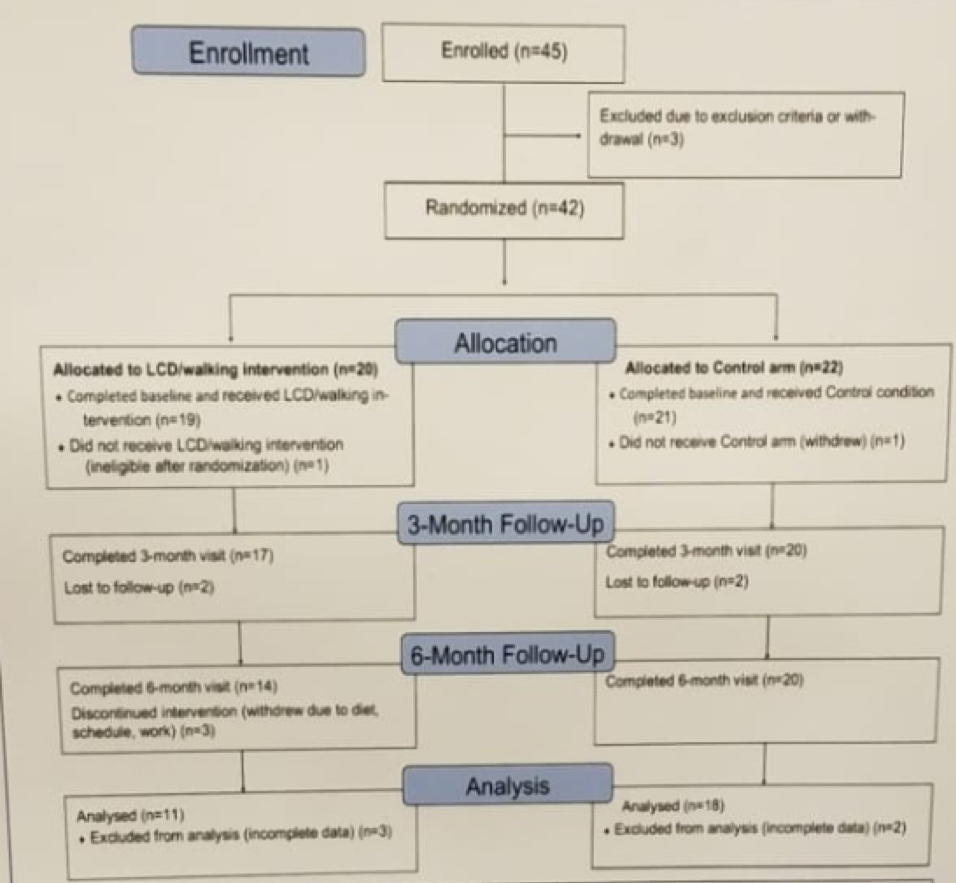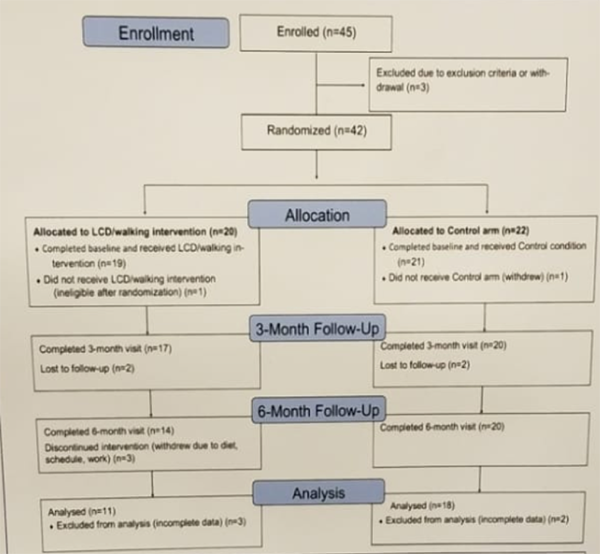A total of 42 patients were randomized (N=20 LCD, N=22 control), 40 completed baseline (N=19 LCD, N=21 control) and 34 completed 6-month visit but only 29 had blood collected (LCD:11/14; control: 18/20). Fasting blood was collected at baseline, and after three and six months of ADT. The CONSORT flow diagram of this study is shown in figure 1.
ADT alone reduced steroid synthesis as reflected by lower androgen sulfate and other steroid hormones. The degree of androgen reduction was negatively correlated with serum glucose
(r=-0.66), supporting the diabetogenic role of ADT. Additionally, a consistent reduction in 3-hydroxybutyric acid was observed, indicating reduced ketogenesis. Third, ADT was associated with a corresponding reduction in Indole-3-carboxaldehyde, a microbiota-derived metabolite from dietary tryptophan. Indole-3-carboxaldehyde is an agonist for the aryl hydrocarbon receptor in intestinal immune cells to stimulate the production of IL22, which regulates mucosal reactivity and inflammation. These changes are summarized in figure 2. Interestingly, combining ADT with an LCD reversed many of the ADT-associated metabolic changes, including reduced ketogenesis and Indole-3-carboxaldehyde, suggesting its potential to mitigate ADT-linked metabolic dysregulation.
In this interesting study, the authors concluded that metabolomic analysis identified important mechanistic insights of metabolic dysregulation of ADT, including ketogenesis and microbial production of indoles. More research is needed to confirm these findings and further examine the underlying mechanisms and functional impact of ADT. We also need to validate the reversal of an LCD on metabolic homeostasis, in an attempt to prevent ADT-linked comorbidities.
Figure 1 – CONSORT flow diagram of the study:

Figure 2 – ADT reduced metabolites in ketogenesis and fatty acid metabolism:

Presented by: Jen-Tsan Ashley Chi, MD, Ph.D., Associate Professor, Center for Genomic and Computational Biology, Durham, North Carolina
Written by: Hanan Goldberg, MD, Urologic Oncology Fellow (SUO), University of Toronto, Princess Margaret Cancer Centre @GoldbergHanan at the American Urological Association's 2019 Annual Meeting (AUA 2019), May 3 – 6, 2019 in Chicago, Illinois


